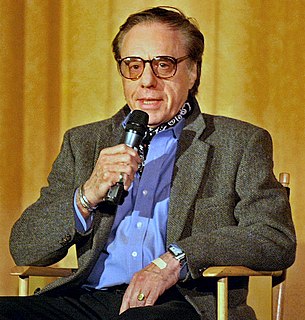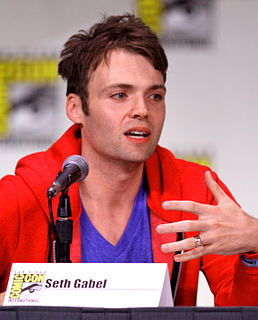A Quote by Peter Weir
I love a chance to shoot real locations, because in films in the earlier days before people traveled as much, it was exotic to see a film set in Switzerland, and that area has been taken over by CGI, mostly, and fantasy landscapes. It's unusual to see this much landscape, people say it's old fashioned. So what you're referring to is there was that period in the '50s and '60s when there were epics and you saw landscape.
Related Quotes
I really only write about inner landscapes and most people don't see them, because they see practically nothing within, because they think that because it's inside, it's dark, and so they don't see anything. I don't think I've ever yet, in any of my books, described a landscape. There's really nothing of the kind in any of them. I only ever write concepts. And so I'm always referring to "mountains" or "a city" or "streets." But as to how they look: I've never produced a description of a landscape. That's never even interested me.
I think one of the reasons younger people don't like older films, films made say before the '60s, is that they've never seen them on a big screen, ever. If you don't see a film on a big screen, you haven't really seen it. You've seen a version of it, but you haven't seen it. That's my feeling, but I'm old-fashioned.
When I started acting in the film industry when I was 16 years old, in 1980, I was going to all the revival theaters in Los Angeles. They were playing mostly films from the '60s and '70s, some from the early '20s and '30s, before that Hays commission. Those films did question things a lot, and there definitely was a switch in 1934. You can see very distinctly in 1934, it's harder to understand what the real culture was. Films made before 1934, you can really kind of see the racism, sexism, drug use, etc. that was going on at that time. And then it was all stopped.
In the '60s when I started to see everything I could see, you could see pretty much everything which was still available from the '30s, '40s, '50s, '60s, and therefore I had an education which was really large and vast in different cinema. That's probably the reason I did not fall for the New Wave. It's really the love of the movies that made me want to become a cameraperson, definitely. I was really a film buff.
I think Hollywood has gone in a disastrous path. It's terrible. The years of cinema that were great were the '30s, '40s, not so much the '50s...but then the foreign films took over and it was a great age of cinema as American directors were influenced by them and that fueled the '50s and '60s and '70s.
The way that people are watching TV is changing. The landscape of television is changing. Movies are becoming much more insular. They're like a walled garden, where you know what you're going to see and you expect it. But in the world of TV, because it's episodic, you can explore any area because you have time to do that. You can take risks on the kinds of storytelling that you're doing.
I have long been interested in landscape history, and when younger and more robust I used to do much tramping of the English landscape in search of ancient field systems, drove roads, indications of prehistoric settlement. Towns and cities, too, which always retain the ghost of their earlier incarnations beneath today's concrete and glass.
Unfortunately it's hard for me to be a fanboy for anything these days just because I see so much music. And it's not a namedropping thing, but there's just not that many people in this certain small little genre world we live in that I don't know or am not acquainted with. And I like them all; I get along with pretty much everyone. It wouldn't be unusual to see a thousand collaborations at some point.
I think films are perishable, because they depend too much on technology, which advances too quickly and the films become old-fashioned, antiques. What I hope for is that technology advances to the point that films in the future will depend on a little pill which you take; then you sit in the dark, and from your eyes you project the film you want to see on a blank wall.





































